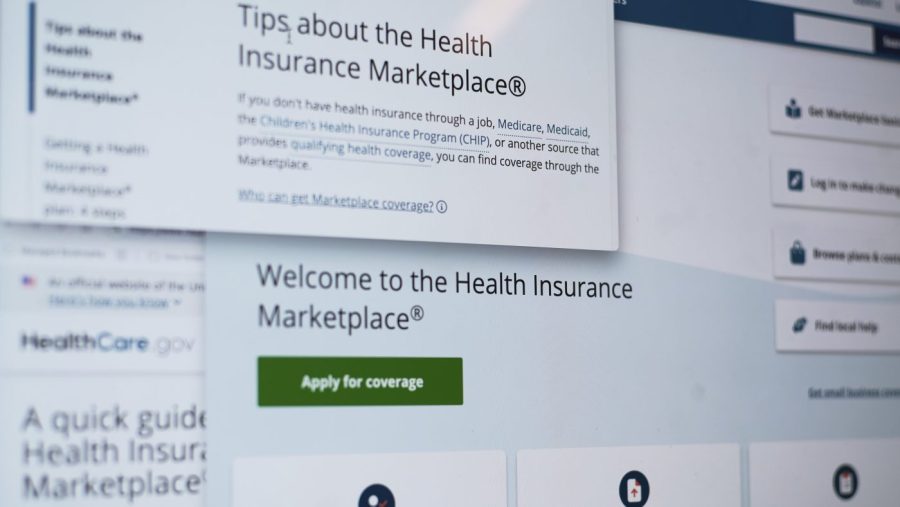Health
Idaho Faces Challenges Amid Ongoing Affordable Care Act Stalemate

As discussions in Congress regarding the enhanced premium tax credits of the Affordable Care Act (ACA) remain stalled, residents of Idaho are experiencing firsthand the implications of this legislative deadlock. The situation in Idaho serves as an early warning for other states, highlighting the potential challenges that may arise as the 2023 open enrollment period approaches.
Idaho has become a focal point in the ongoing debate over healthcare accessibility and affordability. While lawmakers in Washington, D.C., grapple with the future of the ACA, Idahoans are navigating a complex landscape where healthcare options may become increasingly limited. The state’s actions could reflect broader trends that may affect the national healthcare system.
The primary concern revolves around the enhanced premium tax credits, which have been vital for many Americans seeking affordable health insurance. These credits are set to expire unless Congress takes action, leaving millions at risk of losing vital support. According to the U.S. Department of Health and Human Services, approximately 13 million Americans benefited from these credits in the past year, with many relying on them to afford necessary healthcare services.
Idaho’s situation is particularly illustrative. The state’s decision not to expand Medicaid under the ACA has left a significant gap in coverage. Consequently, many low-income residents remain uninsured, which exacerbates the ongoing healthcare crisis. This gap is echoed by the 2023 open enrollment period, where Idahoans face heightened uncertainty regarding their healthcare options and future costs.
The Idaho Department of Health and Welfare reported that enrollment numbers during this period have not met expectations, indicating that residents may be struggling to navigate the available options. The lack of clarity surrounding the continuation of enhanced premium tax credits further complicates the matter. As stated by Dr. Elizabeth Smith, a healthcare policy expert at the University of Idaho, “Without clear information and support, many Idahoans may forgo enrollment altogether, leading to increased healthcare disparities.”
As the debate continues in Congress, the consequences of these legislative decisions are becoming clear. The potential expiration of enhanced premium tax credits could lead to higher premiums and reduced access to care for Idahoans and others across the United States. Many advocates are urging lawmakers to prioritize healthcare reform to ensure that vulnerable populations do not suffer due to political stalemate.
Idaho’s experience may serve as a precursor for the rest of the country. If Congress fails to act on the enhanced premium tax credits, similar challenges could arise in other states, leading to a ripple effect that impacts millions. The need for a comprehensive solution has never been more pressing, and the voices of Idahoans may echo in the halls of Congress as the urgency for action grows.
In summary, the ongoing stalemate in Congress over the ACA’s enhanced premium tax credits is profoundly impacting residents of Idaho. As the open enrollment period nears, the state serves as a critical case study in the broader implications of healthcare policy decisions. The outcomes in Idaho may set a precedent that shapes the future of healthcare accessibility across the nation.
-

 Science1 week ago
Science1 week agoResearchers Challenge 200-Year-Old Physics Principle with Atomic Engines
-

 Politics7 days ago
Politics7 days agoNHP Foundation Secures Land for 158 Affordable Apartments in Denver
-

 Health1 week ago
Health1 week agoNeuroscientist Advocates for Flag Football Until Age 14
-

 Health7 days ago
Health7 days agoFDA Launches Fast-Track Review for Nine Innovative Therapies
-

 Lifestyle1 week ago
Lifestyle1 week agoLongtime Friends Face Heartbreak After Loss and Isolation
-

 World1 week ago
World1 week agoTroops to Enjoy Buffalo Chicken, Thai Curry in 2026 MREs
-

 Top Stories1 week ago
Top Stories1 week agoUnforgettable Moments: The Best Victoria’s Secret Performances
-

 Politics1 week ago
Politics1 week agoIsraeli Air Strikes in Lebanon Kill One, Wound Seven Amid Tensions
-

 Lifestyle1 week ago
Lifestyle1 week agoJump for a Cause: San Clemente Pier Hosts Fundraiser Event
-

 Politics1 week ago
Politics1 week agoMassachusetts Lawmakers Resist Audit After Voter Mandate
-

 Business1 week ago
Business1 week agoMaine Housing Inventory Surges to Post-Pandemic High
-

 World1 week ago
World1 week agoGlobal Military Spending: Air Forces Ranked by Budget and Capability








